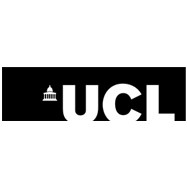'Double helping' of cuts to university research feared
24 June 2010
Responding to the publication of Sir William Wakeham’s report on financial sustainability and efficiency in full economic costing of research in UK higher education institutions, Dr Wendy Piatt, Director General of the Russell Group of 20 research-intensive universities, said:
“We welcome the report’s recognition that the measures taken by institutions to improve financial sustainability have been successful. The report shows Russell Group universities are continuing to make significant progress towards financial sustainability and are using the enhanced income for sustainability to maintain and improve the research infrastructure.
‘‘As the report points out, the UK’s universities have a strong track record in increasing cost-effectiveness and Russell Group universities recognise efficiency savings are crucial in a tough financial climate.
“Nevertheless, the report’s recommendations on indirect cost rates will be very challenging for universities to achieve, with real reductions of 5% proposed and institutions with indirect rates at the higher end to reduce their costs at an even faster rate. We would be particularly concerned if we were subjected to a ‘double helping’ of cuts – the 5% on top of the cuts already announced to the hefce budget. While Russell Group universities are committed to continuing to drive forward efforts in efficiency savings and cost-effectiveness, it is absolutely essential that the full economic cost of our research is appropriately covered.
“Maximising the use of scarce and limited resources is critically important in these challenging times. The report shows that the most research-intensive universities are the most efficient in the sector. We endorse the recommendation that the Funding Councils and Research Councils review their policies with respect to research selectivity and concentration. We also welcome the report’s observation that a more efficient research base could be achieved by concentrating the funding of research into the most research-intensive institutions.
“Russell Group universities already engage in a number of successful collaborations on sharing research equipment and facilities across the sector. An example is the London Centre for Nanotechnology, a joint centre between Imperial College London and UCL, which provides cutting edge facilities for researchers from both universities.
“Funding for financial sustainability needs to be viewed alongside other sources of funding – including funding for postgraduate education considered by Professor Adrian Smith in his recent review. As the review points out, there is a significant deficit on the funding of post-graduate research students, and more sustainable funding models are needed if the quality of the postgraduate experience is to be maintained.
“Wider issues of funding considered by Lord Browne’s review also need to be taken into account. The UK’s research-intensive universities are under-resourced compared to their international competitors, and additional investment is urgently needed if the UK is to maintain its global competitiveness and position.”
Notes to editors
- In the report, this group is defined as ‘Group A’ which includes Russell Group universities and specialist medical schools, but excludes the London School of Economics. Group A, accounts for more than 50% of the total reported deficit, but the highest percentage deficit for an individual Group A institution in 2008-09 was about 30% (deficit as a percentage of total research costs). Other Groups had much higher percentage deficits, with some in excess of 75%.
- Another example of collaboration is the White Rose Consortium which has created a joint virtual centre for low carbon futures research and includes the Universities of Leeds and Sheffield among other institutions.
-
Hamir Patel
hamir.patel@russellgroup.ac.uk
020 3816 1316
-
Stephanie Smith
020 3816 1310
 X
X

